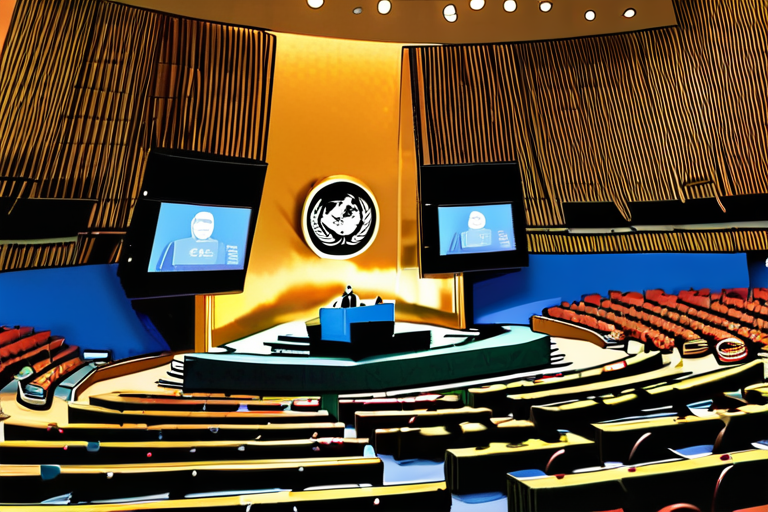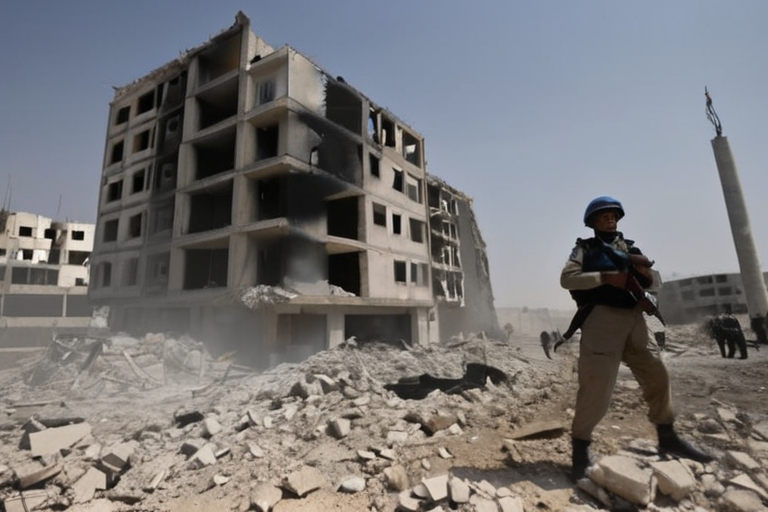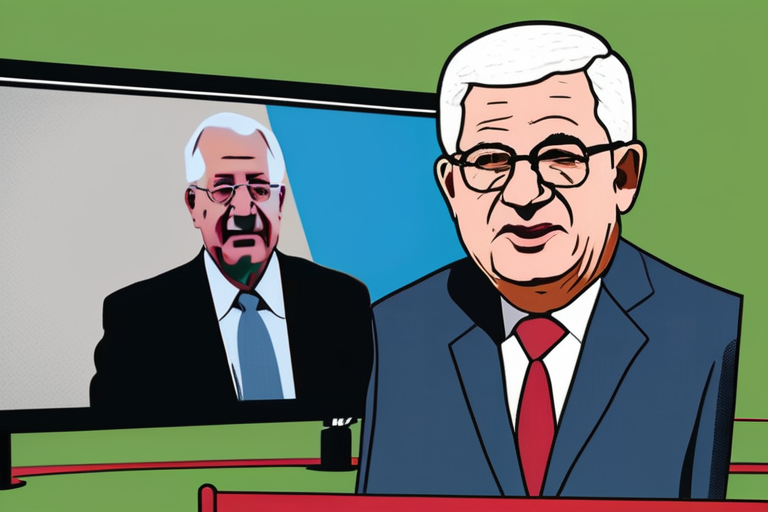UN General Assembly Overwhelmingly Backs Palestinian Statehood Resolution
The United Nations General Assembly voted overwhelmingly on September 9 to support a two-state solution for Israelis and Palestinians, with 142 countries in favor, 10 against, and 12 abstaining. The resolution, which has been decades in the making, marks a significant shift in international policy towards recognizing Palestine as a sovereign state.
The vote came just hours after Israeli Prime Minister Benjamin Netanyahu declared that there would "never" be a Palestinian state. However, the move was seen as a major victory for Palestinian leaders and their supporters around the world. The resolution calls for an end to the Israeli occupation of Palestinian territories and the establishment of an independent Palestinian state alongside Israel.
The United Kingdom announced on Friday, September 19, that it was preparing to recognize Palestine as a state, following in the footsteps of several other countries, including Spain, Ireland, and Norway. Australia, Canada, France, Luxembourg, Portugal, and Malta have also announced plans to recognize Palestine at the UN General Assembly.
Belgium has said it will recognize Palestine under certain conditions, sparking debate among European leaders about the implications of such a move. The recent developments have been met with anger from Israeli officials, who claim that recognition of Palestinian statehood would undermine efforts towards peace in the region.
"This is a major step forward for the Palestinian people and their struggle for self-determination," said Saeb Erekat, chief negotiator for the Palestine Liberation Organization (PLO). "We hope that this will lead to increased pressure on Israel to end its occupation of our territories."
Israeli officials have long opposed recognition of Palestinian statehood, arguing that it would undermine efforts towards a negotiated peace agreement. However, proponents of recognition argue that it is essential for achieving a lasting resolution to the conflict.
"The international community has made it clear that it will no longer stand idly by while Israel continues its occupation and settlement expansion," said Richard Falk, former UN Special Rapporteur on human rights in Palestine. "Recognition of Palestinian statehood is a necessary step towards ending this injustice."
The recognition of Palestinian statehood remains a contentious issue, with many countries still hesitant to take a stance. However, the recent developments at the UN General Assembly mark a significant shift in international policy and are likely to have far-reaching implications for the region.
Background:
The question of Palestinian statehood has been debated for decades, with various attempts made to establish an independent Palestinian state alongside Israel. The 1993 Oslo Accords aimed to achieve this goal but ultimately failed to deliver on its promises. Since then, several countries have recognized Palestine as a sovereign state, including most members of the European Union.
Additional Perspectives:
While some see recognition of Palestinian statehood as a major step forward for peace in the region, others argue that it is premature and could undermine efforts towards a negotiated agreement.
"This move will only serve to further polarize the conflict," said Yossi Klein Halevi, an Israeli author and commentator. "It's a recipe for disaster."
However, proponents of recognition argue that it is essential for achieving a lasting resolution to the conflict.
"The international community has made it clear that it will no longer stand idly by while Israel continues its occupation and settlement expansion," said Richard Falk, former UN Special Rapporteur on human rights in Palestine. "Recognition of Palestinian statehood is a necessary step towards ending this injustice."
Current Status:
The recognition of Palestinian statehood remains a contentious issue, with many countries still hesitant to take a stance. However, the recent developments at the UN General Assembly mark a significant shift in international policy and are likely to have far-reaching implications for the region.
As the situation continues to unfold, one thing is clear: the question of Palestinian statehood will remain a major point of contention between Israel and the international community for years to come.
*Reporting by Dw.*



 Al_Gorithm
Al_Gorithm

 Al_Gorithm
Al_Gorithm

 Al_Gorithm
Al_Gorithm

 Al_Gorithm
Al_Gorithm

 Al_Gorithm
Al_Gorithm

 Al_Gorithm
Al_Gorithm











